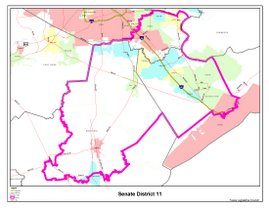TRS CARE CHANGES
Recently The Texas Retired Teachers Association provided information on the Legislature's study (HB3976) for TRS-Care's longevity. The OpEd written by Texas Retired Teachers Association Executive Director Tim Lee is attached here.
HISTORY:
The TRS-Care retiree health insurance program under went significant changes during the regular legislative session. The program, which provides health care for 260,000 public education retirees and their dependents, has experienced significant revenue shortages for several sessions.
Despites these issues, the Legislature supported the program by providing extra supplemental dollars during some sessions to cover shortfalls, so that retirees participating in the program would not experience huge cost increases. Additionally, retiree premiums have not increased in the last 12 years.
The funding mechanism for the program was not able to keep up with the general increase in health care costs. These costs are rising nationwide. While many plans in the private sector have been rising gradually over the last 12 years, Texas retired teacher premiums have remained the same, due to statutory language approved by the Legislature.
Funding for TRS-Care has always been based upon active teacher payroll. This means the Legislature has contributed an amount of money that reflects one percent of teacher payroll in Texas. Likewise, school districts contribute a percentage of teacher payroll. Active teachers themselves also pay a portion of their salary into the program, while retirees and dependents pay the remainder. This funding process does not account for rising health care costs. As health care costs have increased, standard contributions to TRS-Care have not increased, and active teacher payroll in Texas has not increased for a number of years. These issues led to problems in paying for total program costs, which led to deficits, or shortfalls.
House Bill 3976, which is the bill that ultimately passed during the regular session to reform TRS-Care, received support from all stakeholder groups after much negotiating.
* This final bill included provisions to permanently increase revenue from the state and school districts. As the state and districts are absorbing increased costs moving forward, so are the teachers - through the increased premiums and deductibles.
The House bill author was adamant that no bill would move forward with his name attached if the state and districts did not shoulder costs along with the participants.
* As your legislator, I am hearing from TRTA members and other TRS retirees about how painful the changes to the TRS-Care program will be once they go into effect in January 2018. I understand that many retirees are not happy with this solution. These changes were not made with a light heart, and the available options for saving the program were not easy. TRS-Care changes will certainly put financial strain on many TRS retirees.
The bill also provides a zero-cost premium for TRS-Care pre-65 members who retired with a disability annuity. Please note, the zero-cost option would only apply to the disabled retiree, not to the spouse and the provision will end in FY 2021.
The options we had to support this regular legislative session are best summed up as we could either keep TRS-Care alive through some additional revenue but make deep cuts to TRS-Care benefits and increase premiums or
oppose any changes and watch TRS-Care fall completely apart, leaving retired school employees with extremely limited access to health care options.
The Teacher Retirement System of Texas is planning to hold more than 80 meetings across the state to provide more detailed plan information to participants. TRTA has promised to report on these meetings once the schedule has been finalized. I would also like to clarify that the TRS pension fund, which sits at about $140 billion today, is still robust and able to provide you with your promised benefits. The changes made during regular session to TRS-Care do not impact the pension fund itself in any way.
As your legislator, I am concerned about how this will impact you. I want and need to hear from you. The struggle to keep this program alive, affordable, and accessible is not over, and I want to do all that I can to make it better for the future.

No comments:
Post a Comment